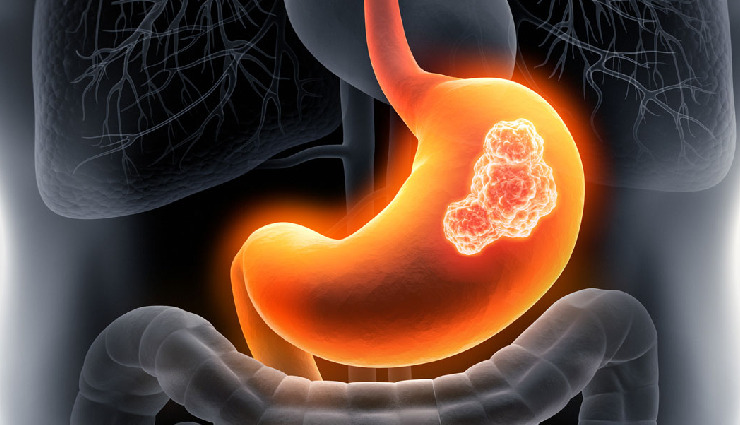- Home›
- Healthy Living›
- 8 Major Warning Signs To Look Out For Stomach Cancer
8 Major Warning Signs To Look Out For Stomach Cancer
By: Priyanka Maheshwari Thu, 09 Jan 2025 12:03:33

Stomach cancer, also known as gastric cancer, is the growth of abnormal cells that form a mass in the stomach. Symptoms of stomach cancer are often not noticeable until the disease has spread throughout the stomach or to other organs. The five-year survival rate for stomach cancer is 90%, but it drops significantly if the cancer reaches its advanced stages.
Stomach cancer is known to be one of the most painful forms of cancer, but pain is not always the first sign. This type of cancer is not usually inherited; instead, most cases are sporadic or caused by random DNA mutations.
One of the key features of stomach cancer is that it often shows no symptoms initially. Any symptoms that do appear may be easily overlooked, which is why it’s crucial to be aware of the warning signs before it’s too late. Understanding the risk factors and early symptoms of stomach cancer can help with early detection. This article outlines some of the key early warning signs to watch for.
Recent studies have shown that recognizing certain symptoms can help prevent serious outcomes. Here are some common early warning signs:

# Changes in Stool
Changes in the size, frequency, or consistency of your stool, along with persistent abdominal discomfort, may indicate digestive tract cancer. Blood in the stool is another red flag and should be evaluated by a doctor to rule out stomach cancer.
# Constant Abdominal Pain
Persistent pain in the abdomen could signal the growth of a cancerous mass in the stomach. This ongoing discomfort should not be ignored, as it is a common symptom of stomach cancer.

# Loss of Appetite
While loss of appetite can be caused by many minor conditions, ongoing disinterest in food could be an early warning of stomach cancer. Ulcers, which are a risk factor for stomach cancer, can also contribute to a loss of appetite.
# Unexplained Weight Loss
Unintentional weight loss, especially if sudden, should not be ignored. Though gradual weight loss might not be concerning, a rapid drop in weight is often linked to stomach cancer, particularly due to loss of appetite, and should be checked by a doctor.

# Persistent Heartburn
Chronic heartburn, indigestion, and similar issues may be indicative of stomach cancer. Heartburn is both a sign and a risk factor for this disease.
# Bloating, Diarrhea, and Constipation
A tumor in the stomach may cause bloating or disrupt bowel movements. If these symptoms persist, it is important to consult a doctor for further evaluation.

# Difficulty Swallowing
If stomach cancer spreads to the esophagus, it can cause dysphagia, or difficulty swallowing. This can result in coughing or choking while eating or drinking and, in some cases, food may feel as though it is coming back up after swallowing.
# Early Fullness While Eating
In late-stage stomach cancer, the stomach’s muscles may no longer be able to move food properly through the intestines. This can cause a sensation of fullness even after consuming only a small amount of food.
How to Reduce the Risk of Stomach Cancer
Experts suggest the following lifestyle changes to help reduce the risk of stomach cancer:
- Limit alcohol consumption and avoid tobacco products.
- Adopt a cleaner, mostly plant-based diet.
- Avoid smoked and pickled foods.
- Consume plenty of whole-grain foods such as bread, cereals, pasta, and rice.
- Maintain a healthy weight.
Related Stories:





